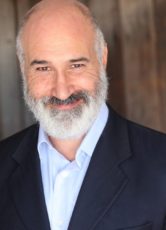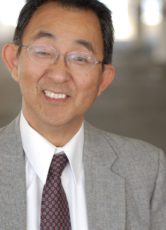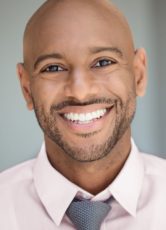
If you ever have a casting appointment with Jennifer Ricchiazzi, you might want to factor in a few extra minutes on either side. Not just because you might have to wait, but also because she very well could end up spending a lot of time with you. Like a lot of other casting directors, she’s a former actor herself and thus is tough in a room, but it’s because she works hard to get the best out of you. She also expects you to know more than just the character you’re playing, so be prepared for a challenge.
At the same time, you will almost certainly walk out of that room a better actor than you were when you walked in. It’s part of the reason why Ricchiazzi eschews big studio films for indie fare, but then, to say more would take away from a pretty fantastic conversation.
Her latest movie is the biopic Reagan, starring Dennis Quaid as America’s 40th President. She chatted with us from her home in LA, and we were joined by Cleo, one of her nine cats. Yes, nine.
How did you get into casting?
I was an acting major at USC in the conservatory program that you have to audition to get into. All your general ed is waived, which is one of the benefits of that BFA program, in my opinion, but halfway through my freshman year, I realized I did not love acting enough to do acting itself. I found myself in my classes drawn to everybody else, what roles they were picking for themselves and sometimes disagreeing. One of my professors said, “Hey, have you ever thought of casting?” Back then I was like, “I don’t even know what casting is.” He got me an internship and it went from there.
I’ve talked to several dozen casting directors over the last year as part of this series, and it continues to stun me how many of you started as actors.
One of my favorite classes was script analysis, just breaking down the script and finding all those moments and beats and asking why this character does that and does it make sense.
The one thing that benefits a casting director coming from the acting side is when we’re breaking down a script, we’re breaking down every single character in that script. When we pull scenes from that script, there’s a reason why those scenes are pulled. I have the benefit of breaking down this other character that I’m playing opposite of you, so I can give you insight into why this person is trying to get something out of you in this scene.
I always tell actors that your job is to break down one part, but take a couple of minutes to break down the other character in the scene because when you do that, it might open up a lot of things for your character.
Sometimes the actors just have the tunnel vision of my part, my part, my part. Yes, but your part is responding to everybody else in the script. Why are you doing this? Because that person needs something from you. You need to know what that person needs from you, so you need to spend a little bit of time breaking down the characters other than your own to fight with to agree with or to move your character in a certain direction. It will help you with your character.
Would you be surprised to hear that in all of the interviews I’ve done, you’re the first casting director who said this to me?
Seriously? I think it’s vital. That’s the craft of acting. You can’t put your character together if you don’t know what the other characters are trying to do.
It makes perfect sense, I’m just saying that I can’t believe that nobody else has suggested this.
Well, think about it this way. I remember acting 101. You prepare your scene and you’re performing and the teacher says, “Okay, switch.” Switch? I haven’t spent two seconds caring about what the other person is doing. That’s not my character. However, I will play my character better once I know what that other person needs. How hard will I resist it? How hard will I agree with it? I mean, it only benefits your process of putting your character together.
I remember that very vividly. Switch. It was scary, it was intimidating, but it forced me to recognize their objective in the scene.
How do you manifest that with people in the room?
Quite honestly, I am notorious for running late because I do spend so much time with actors. The first thing I say when they walk in the door is, “Did you read the script?”
I have the benefit of working in independent film. I send the script to everybody. If an actor has not read the script, I send them away. You cannot throw away that opportunity to audition for something. When you have no idea where your character came from and where your character was going and you’re looking at this tiny little scene and pretending your way through it, it’s unacceptable.
There’s way too much competition out there for you not to take this seriously, and I am spending my time breaking down the script to try to help an actor get a part. If I have done more work than the actor coming in the door to audition, that’s a big problem.
I am hard on actors, but I think that’s because I was an acting major and I know what it takes. Leave it all in the room.
I also tell actors never to continue through a mistake, especially with just the casting director. Stop your audition if you started on the wrong foot. Almost every single time, it opens up for you to get a really quick note to start the scene again. That is your time in the room, and it’s not easy to get time in the room. I know that. Take your time, own your time, and use it wisely.
You talked about how much you work in independent film. What’s the appeal for you?
I feel like independent film is just a little bit more organic. Putting it together, I feel like I’m so much more of a team player than just the person who is doing quantity as opposed to quality. I feel like my voice is maybe a little bit more heard in independent films.
What’s different about Reagan?
Reagan is an independent film, too, it’s just a beast of one. I’ve been working on that movie for probably six years. And I’m strict when it comes to authenticity for characters.
For example, Margaret Thatcher. I was like, “There’s no way in hell I’m not casting a British actress to play Margaret Thatcher. One of the most iconic British women in the entire world has to be a British actress. We already have Dennis, we already have Jon Voight, and we already have Penelope Ann Miller, let’s start filling it in with these great character actors that make sense in these parts.”
I wanted to put people on screen that were very respectful to the real people, and thank God I had a team who were like, “Yep, okay, that’s perfect.” It was a dream to work with them. Reagan being that independent film, even though it’s a beast, I still approached it the same way.
This article originally appeared on Casting Networks.
Want to get your acting career started? Sign up or log in to Casting Frontier and start auditioning today!
You may also like:
- 5 Simple Tips for Nailing Your Shakespeare Auditions
- Age and Acting: How to Age Yourself Up or Down for a Role
- Kerry Barden and Paul Schnee Talk Casting ‘Palm Royale’ and Share Self Tape Tips
Written by Neil Turitz




